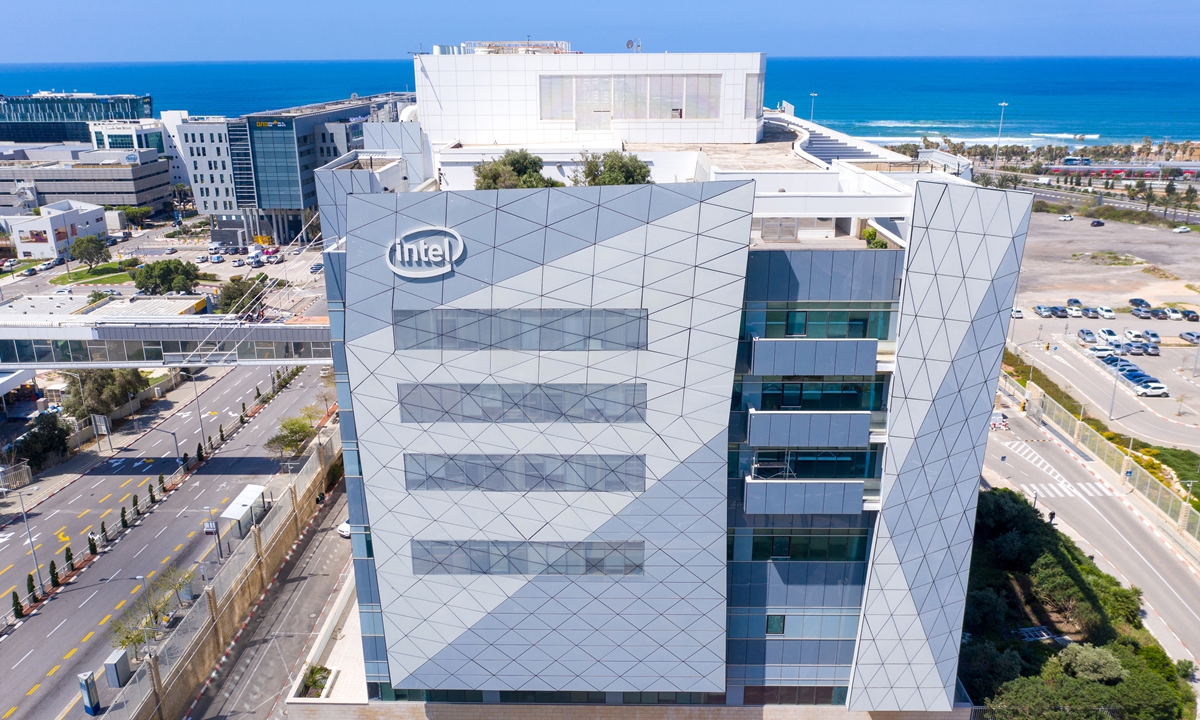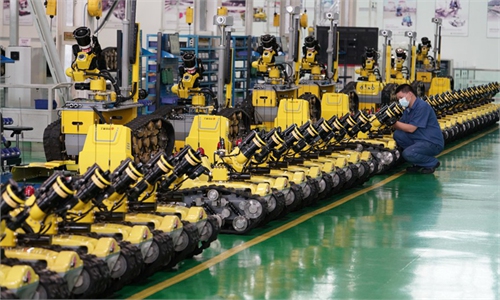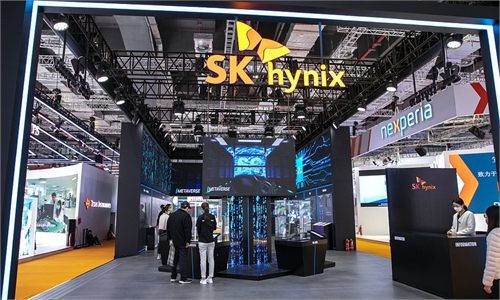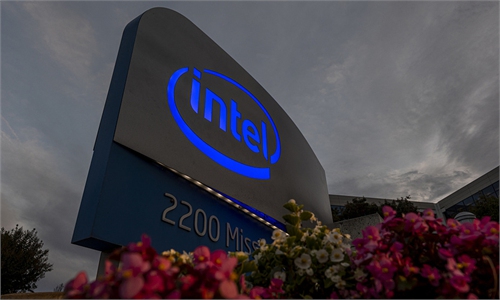COMMENTS / EXPERT ASSESSMENT
Biz Quick Take: Intel’s backpedaling on Xinjiang offers a lesson for multinationals

Intel Photo: VCG
US chipmaker Intel has moved to delete a paragraph regarding Northwest China's Xinjiang Uygur Autonomous Region from an annual letter to suppliers, which sparked widespread anger among the Chinese public and prompted at least one partner, pop singer Wang Junkai, to sever ties with the company.The removal of the Xinjiang reference, which was reported by Reuters, is another step taken by Intel to rescue its reputation in China. In late December, the company said in a statement that it "deeply apologizes" for the trouble caused to its "respected Chinese customers, partners and the public."
Evidently, that apology was not sufficient to satisfy many Chinese citizens, who criticized the company for buying into US politicians' lies about "forced labor" in Xinjiang in the first place and only apologizing to save its businesses in the Chinese market. It seems that Intel has got that message, as it took a step further to remove the paragraph.
On Chinese social media, there are still plenty of voices criticizing Intel even after the removal of the Xinjiang reference. However, it should be acknowledged that the company is making efforts to rectify its mistake, which is a positive step.
More importantly, it must be pointed out that despite the viciousness of Intel's initial letter, it is the US government that is pushing the lurid and ridiculous assertions of "forced labor" and "genocide" in Xinjiang and actively forcing businesses to ban products from the region. That's the root cause for the troubles Intel and many US and other foreign businesses face in the Chinese market, and that remains intact.
Certainly, Intel did not have to bow to the pressure from radical US politicians and publish the letter, as numerous US and other foreign businesses have so far done. But it did, and the result was a fierce backlash from one of its biggest market and a forced backpedaling, which will likely prompt criticism from anti-China US politicians. No company in the world wants to be in such an awkward, vulnerable position.
That should be a valuable lesson for many US and other foreign businesses, as they continue to or will likely face mounting political pressure from US politicians to ban products from Xinjiang based on political lies. Some, including apparently Wal-Mart, which has been accused of removing Xinjiang products from its shelves in China, will pay a price for it, if they undermine Chinese interests and offend Chinese consumers. Others, like US electric carmaker Tesla and Japanese clothing brand Uniqlo, have brushed off unreasonable US political pressure.
Tesla has come under fire from radical anti-China US politicians such as Marco Rubio for opening a showroom in Xinjiang, but the company has so far refused to bow to the pressure and change its business plan.
Uniqlo's founder and CEO Tadashi Yanai won praise on Chinese social media platforms after he said in a recent interview that "the US approach is to force companies to show their allegiance. I wanted to show that I won't play the game."
As the reality on the ground in Xinjiang increasingly knocks down the ludicrous lies pushed by US politicians and as the Chinese market continues to grow and the will of Chinese consumers to safeguard their rights and interests strengthens, more and more foreign businesses will reject the US political game over Xinjiang.
To radical anti-China politicians in Washington: You may think you are smart by forcing US businesses and multinationals into doing your dirty work, while you are hiding back in your offices, but, sooner or later, your lies will come home to roost.



